The ring pattern of the water snake Nerodia sipedon in Lake
The ring pattern of the water snake Nerodia sipedon in Lake Erie can be classified using 4 different classes: on the mainland, snakes are mostly heavily–patterned with rings (class D), whereas on islands snakes mostly occur either without rings (A), or light–patterned (B), or finally moderately–patterned (C). The occurence of the four classes in samples taken on two different island groups is the following: Assume the following “box theory”: the distribution of the classes is the same on the two islands. This theory and the related null hypothesis (H0) are checked by means of a 2 test.
(a) determine how many snakes of class A are expected on location 1;
(b) determine the 2;
(c) determine the number of degrees of freedom;
(d) determine the p–value and formulate a statement on the significance of H0.
| ||||||||||||||||||||
| (a) determine how many snakes of class A are expected on location 1; (b) determine the 2; (c) determine the number of degrees of freedom; (d) determine the p–value and formulate a statement on the significance of H0. |
Solution
The ring pattern of the water snake Nerodia sipedon in Lake Erie can be classified using 4 different classes: on the mainland, snakes are mostly heavily–patterned with rings (class D), whereas on islands snakes mostly occur either without rings (A), or light–patterned (B), or finally moderately–patterned (C). The occurence of the four classes in samples taken on two different island groups is the following: Assume the following “box theory”: the distribution of the classes is the same on the two islands. This theory and the related null hypothesis (H0) are checked by means of a 2 test.
class
location 1 (Bass Islands)
location 2 (Middle & Pelee)
A
78
100
B
82
43
C
39
35
D
16
10
total
215
188
expected value =215*178/403 = 94.96
chi square =7.815
DF=(4-1)(2-1) =3
(d) determine the p–value and formulate a statement on the significance of H0.
P=0.002
Calculated P=0.002 < 0.05 level of significance
The null hypothesis is rejected.
We conclude that the distribution of the classes is different on the two islands.
Chi-Square Test
Observed Frequencies
Column variable
Calculations
class
location 1
location 2
Total
fo-fe
A
78
100
178
-16.9628
16.9628
B
82
43
125
15.3127
-15.3127
C
39
35
74
-0.4789
0.4789
D
16
10
26
2.1290
-2.1290
Total
215
188
403
Expected Frequencies
Column variable
class
location 1
location 2
Total
(fo-fe)^2/fe
A
94.96
83.04
178
3.0300
3.4651
B
66.69
58.31
125
3.5161
4.0210
C
39.48
34.52
74
0.0058
0.0066
D
13.87
12.13
26
0.3268
0.3737
Total
215
188
403
Data
Level of Significance
0.05
Number of Rows
4
Number of Columns
2
Degrees of Freedom
3
Results
Critical Value
7.815
Chi-Square Test Statistic
14.745
p-Value
0.0020
Reject the null hypothesis
| ||||||||||||||||||||
expected value =215*178/403 = 94.96
chi square =7.815
DF=(4-1)(2-1) =3 (d) determine the p–value and formulate a statement on the significance of H0. |
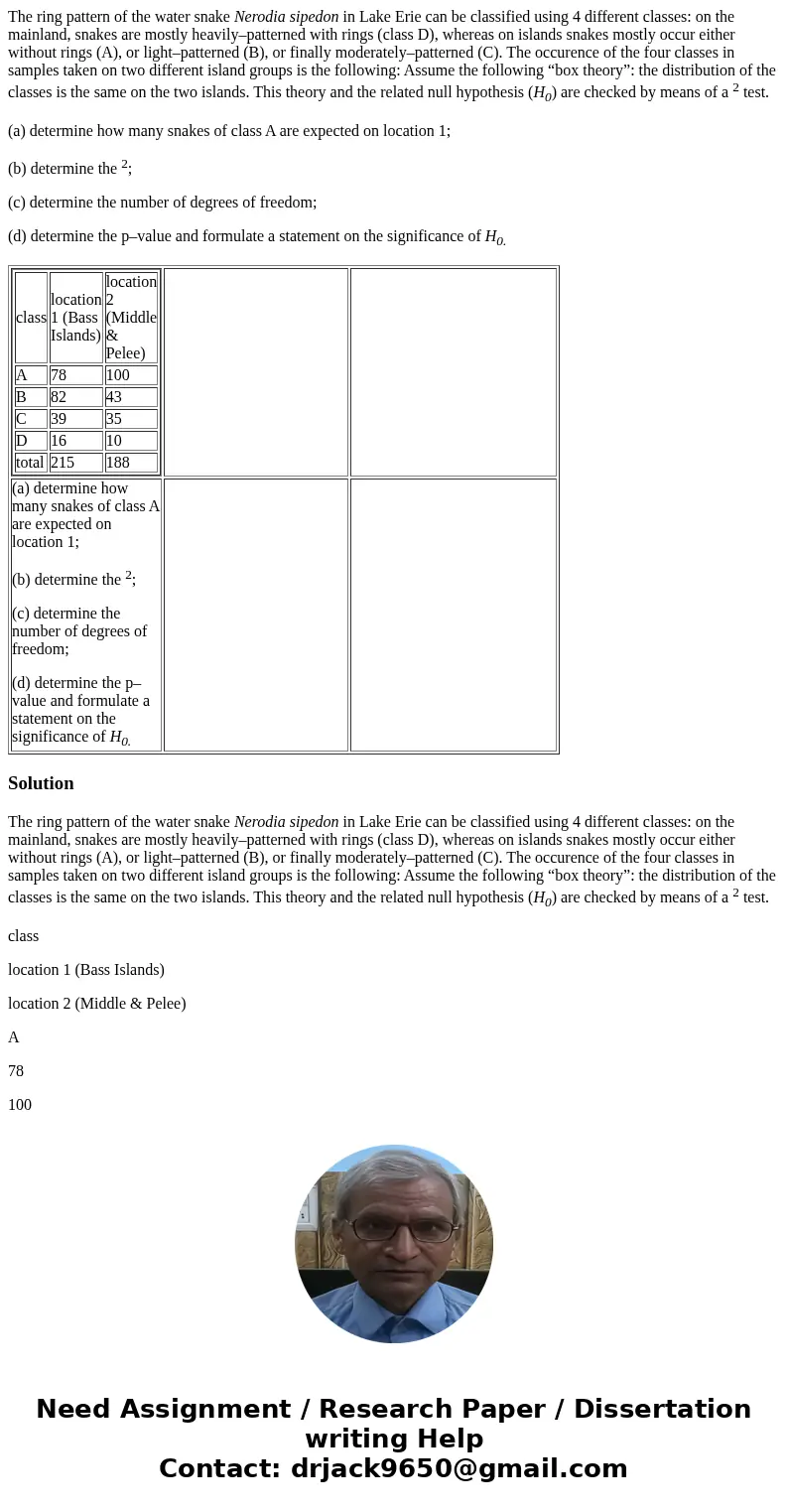
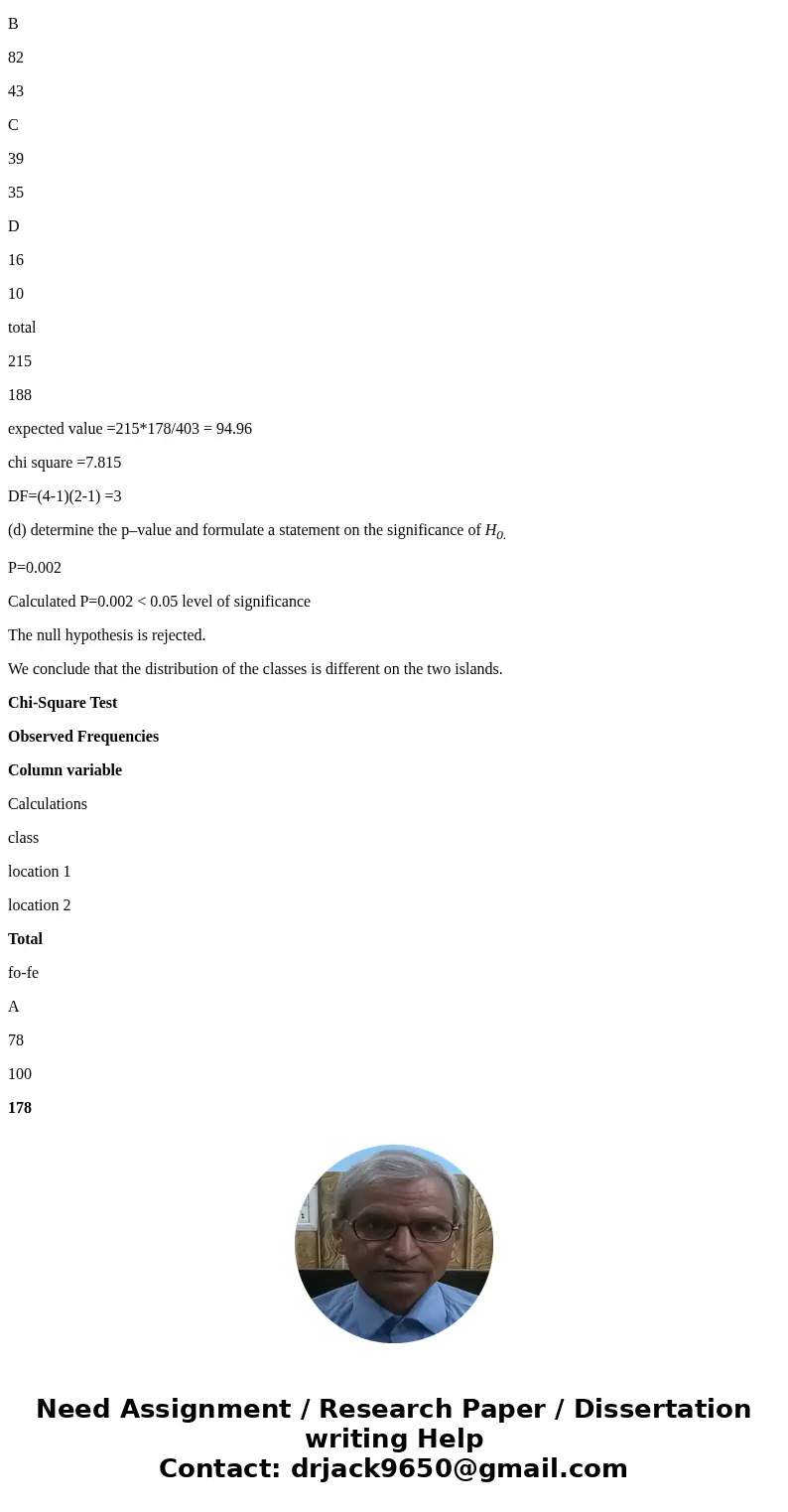
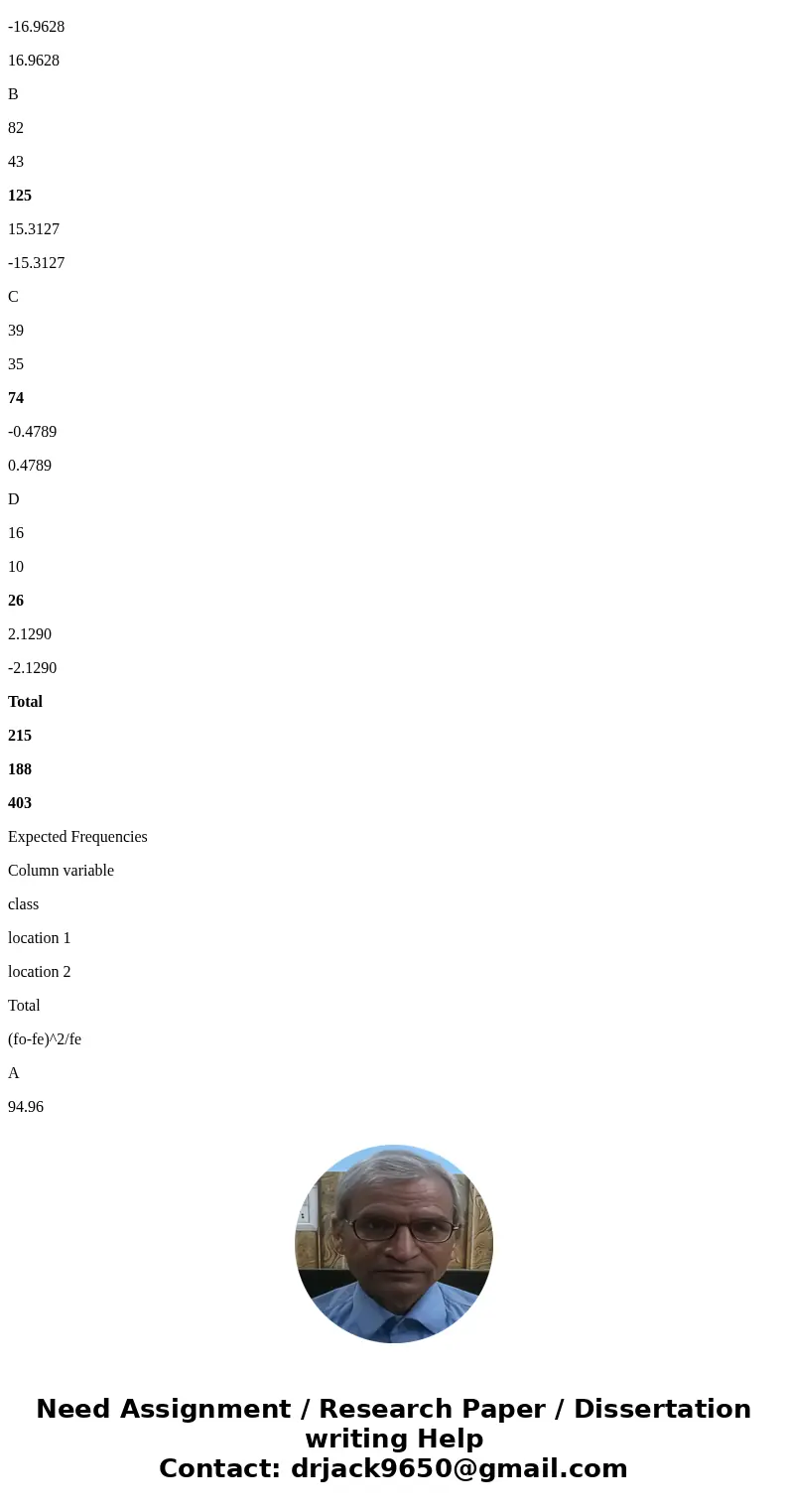
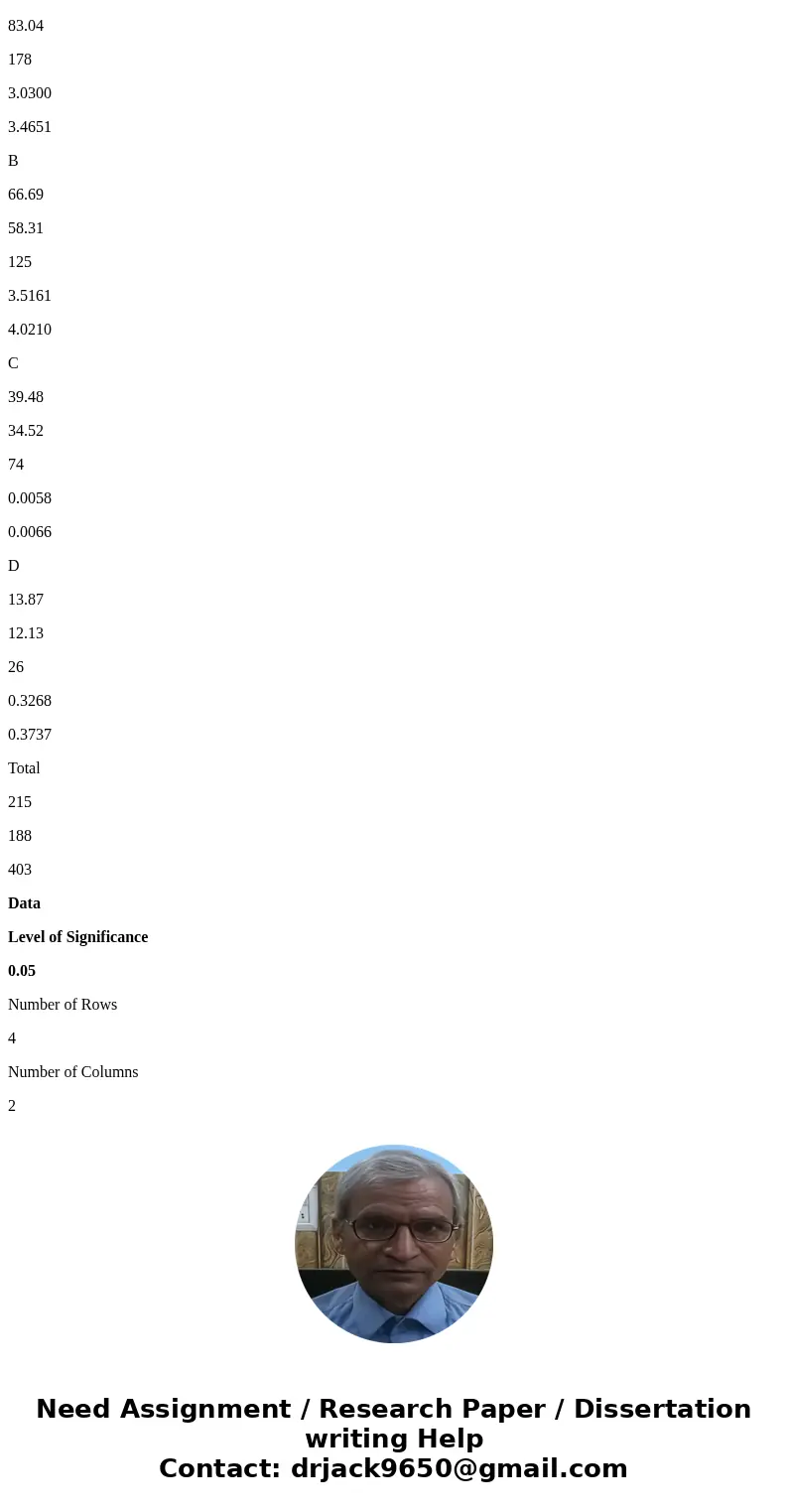
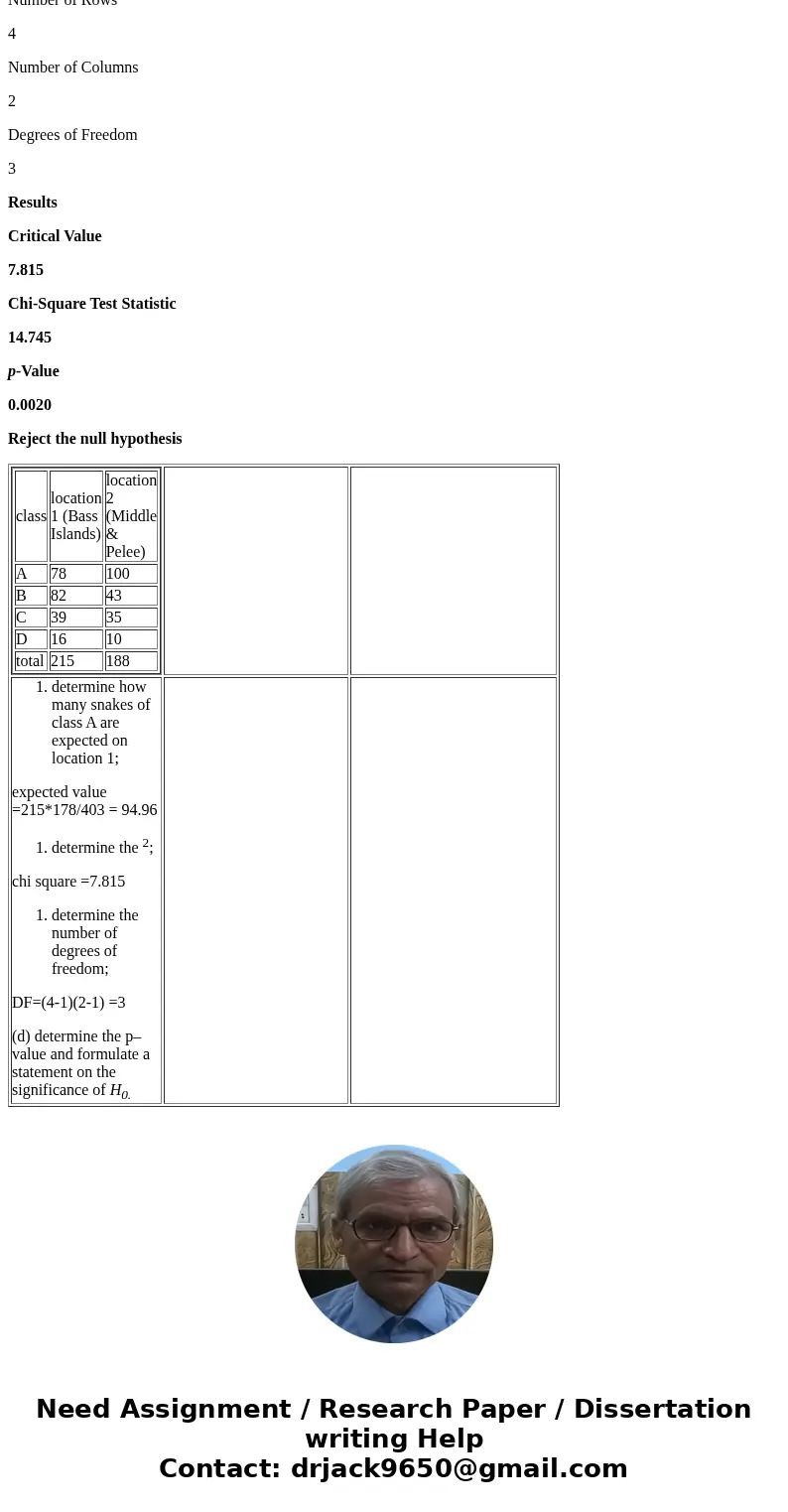
 Homework Sourse
Homework Sourse